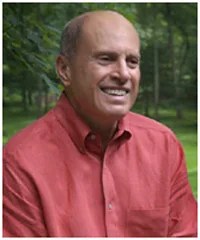“The privilege of a lifetime is being who you are. — Joseph Campbell
There’s a story about Thom Hartmann, author of many books on attention deficit disorder, who, when traveling by train through India, began a conversation with some local businessmen. “I’m curious,” he said. “In your country, are you familiar with the personality type where people seem to crave stimulation but have a hard time focusing on one thing?”
One of the businessmen answered, “Yes, we know this type well.”
“What do you call it?” Hartmann asked.
“Very holy,” said the man. “These are old souls near the end of their Karmic cycle. We have great respect for such individuals. Though their lives may be difficult, it is these difficulties that purify the soul.”
Then they asked Hartmann, “How do Americans view these people?”
“In America,” Hartmann replied, “they are considered to have a psychiatric disorder.”

More and more children who seem easily distracted, act impulsively, shift attention frequently, fail to follow instructions, or act without considering the consequences of their behavior are being labeled as having either attention deficit disorder (ADD) or attention deficit hyperactivity disorder (ADHD). Both are considered psychiatric disorders or illnesses.
Such labels provide a sense of order to people who apply them. But for the children to whom they are applied, the result is often lowered self-esteem and the expectation of failure in school and relationships. After all, the childhood social imperative is to fit in with peers — not to be different, especially when different implies inferior.
Further, the programs designed to address classified children, though well-meaning, carry pejorative labels such as “resource rooms” and “special education”. This reinforces the idea that these kids are “damaged” in some way. Consider the traumatic impact all this has on a child’s expectations for her future!
The trauma of being classified as “inferior” first shows up and is held within the body in a particular way. Moshe Feldenkrais, Thomas Hanna, Roye Fraser, and Joseph Riggio are among the notable people who have demonstrated that all experience involves movement, i.e., all thoughts, feelings and behaviors first manifest as shifts in posture, muscle tension, breathing, eye movements, and so forth. This body experience is called the somatic form.
When a child gets negative feedback about his behavior from teachers, parents and peers, he experiences it first within his body in a certain way. Call it an inhibitory somatic position. As a result, he feels and acts like someone who expects to fail, leading to more negative feedback. This becomes a vicious cycle.
But what if, instead of focusing on negative behaviors and addressing these kids as though they have a problem, attention is paid to the things they do well?
The somatic form we present to the world at any given time determines the response we get from those around us. Imagine the difference in those responses if we adopt a way of holding our bodies in relation to what is possible instead of what is not. Restoring self-esteem can empower an ADD/ADHD child to change. It can help kids in ways that labeling, isolating and medicating often do not.
The key is to discover what an ADD/ADHD child does inside to access the body position he holds when something fascinates him — the somatic form that represents who he is at his best. And once that experience has been identified, the task becomes designing life circumstances that can sustain it.
What can a parent do to help? Observe your child closely when he is doing something he likes, or talking about something he’s enthusiastic about. Have him tell you about something that interests him or that he feels he does well. Watch the way his body shifts in very small ways. Notice his posture, breathing, gestures, eye movements, the rhythm of speech.
Then subtly feed his form back to him by doing as he does. The more he can hold this experience in his body, the more it will stimulate a desire to learn and experience pleasure in knowledge.

DR. RANDY W. GREEN is a New York State-licensed psychologist practicing in Hopewell Junction, NY, and soon in Mt. Kisco. He can be reached at 845-226-2356, www.creativesolutionsinteractive.com, or the “private access” section (specifically for ADD/ADHD) at www.add-adhd-free.com.























